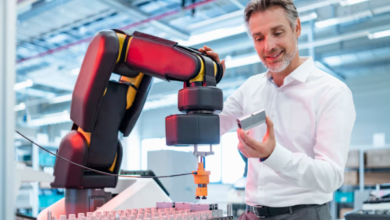
Selecting the Right Benchtop Refrigerated Centrifuge for Laboratory Efficiency
Introduction to Benchtop Refrigerated Centrifuges
A benchtop refrigerated centrifuge is an essential tool for laboratories requiring precise temperature control during sample separation. Unlike standard centrifuges, these models allow laboratories to maintain samples at consistent temperatures, preventing degradation of heat-sensitive biological materials. Laboratories in clinical, research, and industrial settings rely heavily on these instruments for accurate results.
When investing in a benchtop refrigerated centrifuge, it is critical to consider not only the specifications of the machine but also the reputation of the supplier, service support, and the overall reliability of the equipment.
Key Features to Look for in a Benchtop Refrigerated Centrifuge
Modern benchtop refrigerated centrifuges come equipped with advanced features designed to improve laboratory workflows. Key aspects to consider include:
- Temperature Control: Accurate and stable temperature regulation ensures sensitive samples are preserved during high-speed spinning.
- Rotor Compatibility: The ability to accommodate multiple rotor types increases flexibility for different sample volumes.
- Speed and Acceleration: Adjustable speeds and rapid acceleration/deceleration improve efficiency for various applications.
- Digital Interface: Touchscreen controls and programmable protocols simplify operation and reduce the risk of errors.
- Safety Features: Imbalance detection, lid locking systems, and automatic shutdowns protect both samples and users.
Laboratories should carefully evaluate these features when selecting a model to meet their specific requirements.
See also: Medical Software for Healthcare Providers: Enhancing Care Through Technology
Applications Across Laboratory Fields
The versatility of a benchtop refrigerated centrifuge makes it indispensable across multiple laboratory disciplines.
- Clinical Laboratories: Blood separation, plasma isolation, and diagnostic testing are primary uses.
- Molecular Biology: Isolation of DNA, RNA, and protein fractions often requires temperature-controlled centrifugation.
- Pharmaceutical Research: Drug formulation analysis and quality control rely on precise sample processing.
- Biotechnology: Culture preparation and viral particle separation require reliable cooling to maintain sample integrity.
- Environmental Studies: Concentration of microorganisms from soil, water, or air samples is facilitated by refrigerated centrifuges.
By selecting a benchtop refrigerated centrifuge laboratories ensure reproducibility and accuracy across these diverse applications.
Advantages of a Benchtop Refrigerated Centrifuge
Investing in a benchtop refrigerated centrifuge offers numerous benefits that enhance laboratory operations:
- Sample Integrity: Maintaining low temperatures prevents thermal degradation of sensitive materials.
- Compact Design: Benchtop models save space while offering high performance, ideal for laboratories with limited bench space.
- Energy Efficiency: Many models feature energy-saving modes, reducing operational costs.
- User-Friendly Operation: Programmable settings and digital displays simplify routine tasks and minimize human error.
These advantages make refrigerated benchtop centrifuges a practical choice for laboratories requiring precise control over their sample processing conditions.
Selecting a Reliable Supplier
Choosing the right supplier for a benchtop refrigerated centrifuge is just as important as selecting the equipment itself. Reliable suppliers provide:
- Quality Assurance: Machines meet international safety and performance standards.
- After-Sales Support: Installation, maintenance, and calibration services ensure the centrifuge remains in optimal working condition.
- Training: Comprehensive training for laboratory personnel helps maximize the efficiency and lifespan of the equipment.
- Replacement Parts Availability: Easy access to rotors, lids, and other components reduces downtime.
A trustworthy supplier ensures laboratories receive not just the equipment but also ongoing support to maintain consistent performance.
Maintenance Best Practices
Proper maintenance of a benchtop refrigerated centrifuge extends its operational life and ensures reliable results. Recommended practices include:
- Regular Cleaning: Rotors, buckets, and chambers should be cleaned to prevent contamination and corrosion.
- Temperature Calibration: Periodic verification of cooling systems ensures consistent sample preservation.
- Mechanical Inspections: Checking electrical connections, seals, and bearings prevents unexpected failures.
- Routine Lubrication: Rotors and moving parts require appropriate lubrication to maintain smooth operation.
Adhering to these maintenance routines reduces the risk of sample loss and ensures laboratories can rely on their centrifuge for critical applications.
Technological Innovations
Recent technological advancements have significantly improved the functionality of benchtop refrigerated centrifuges:
- Smart Monitoring Systems: Digital sensors monitor speed, temperature, and rotor balance in real-time.
- Remote Access: Some models allow remote monitoring and control, facilitating laboratory management from off-site locations.
- Customizable Programs: Laboratories can store multiple protocols for repeated use, saving time and reducing errors.
- Noise Reduction: Advanced motor designs reduce operational noise, improving the laboratory environment.
These innovations make it easier for laboratories to achieve precise, reproducible results while maintaining user safety and comfort.
Cost Considerations
While the initial investment for a benchtop refrigerated centrifuge may be higher than standard centrifuges, the benefits justify the expenditure. High-quality machines offer:
- Reduced sample loss due to thermal degradation.
- Lower maintenance costs through reliable operation.
- Extended equipment lifespan with proper care.
Choosing a trusted supplier ensures laboratories get long-term value for their investment.
Conclusion
A benchtop refrigerated centrifuge is a vital instrument for modern laboratories that require precise temperature control during sample processing. Selecting a high-quality model from a reliable supplier ensures accuracy, reproducibility, and efficiency across clinical, research, and industrial applications.
By considering factors such as temperature stability, rotor compatibility, digital controls, and after-sales support, laboratories can make informed decisions that enhance workflow efficiency and sample integrity. Reliable suppliers, combined with proper maintenance and the latest technological features, help laboratories achieve consistent, high-quality results.
Investing in a benchtop refrigerated centrifuge is not just acquiring a machine; it is enhancing the laboratory’s capability to perform critical experiments with precision and confidence.




